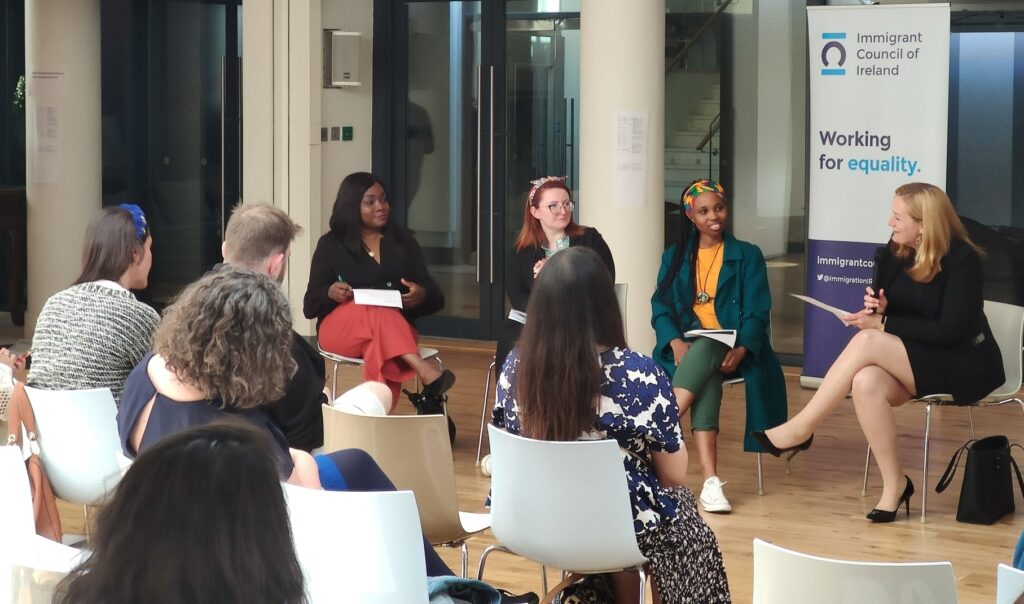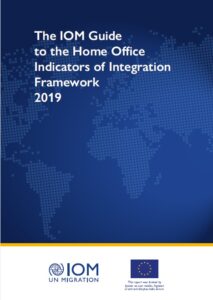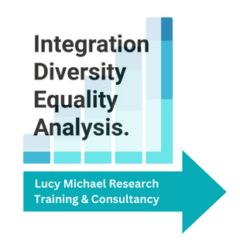
Tuesday 10 May, 2022, Immigrant Council of Ireland Migrant Integration Conference
Panel: Lord Mayor of Longford, Uruemu Adejinmi, Aga Wypychowska of Laois Partnership and Joy Eniola of Dublin City Council, chaired by Lucy Michael
It’s our pleasure to publish here our notes of the panel, capturing the expertise of the speakers. You can also see the thread and commentary on Twitter here
On Principles to support strong coalitions; Lord Mayor Adejinmi pointed to communication, respect and equality. Shared goals are key. Joy Eniola highlights the need for ownership, inclusive representation, learning, and being willing to redefine success around outcomes rather than outputs. In that, it sounds rather like Joy is moving towards a Theory of Change approach!
Aga Wypychowska points to the need for organisations to understand each others drivers – voluntary and statutory organisations are driven by very different aims, with different resources and timescales.
Migrants are not at the tables setting integration policy, or even designing and managing programmes or activities designed for their inclusion. In this, Integration work can actually reinforce exclusion and distinction between receiving communities and migrants.
Inclusion is not just in terms of the wider activities, but must also be at the decision making table too. Trust is key to making good integration plans and programmes effective, and that only happens with migrants involved in plans aimed at them.
We turned to factors that undermine good coalition working, and these are multiple. I think we can all recognise these from our work in this sector.
Capacity on the voluntary side means that you often see the same faces at multiple tables. That can lead to singular approaches, and sometimes blurred lines because they are across different coalitions.
Big organisations (esp statutory) dont recognise the urgency of volunteer organisations. Frustration and delay leads to volunteer dropoff as they become exhausted.
Other factors: meetings about meetings, micro management, lack of accessibility, poor leadership from the Chair/lead organisation, and high turnover of key staff supporting coalitions can lead to collapse.
Above all, the absence of shared principles and equality in coalitions for integration means that the very aim – equality – is missed. Thus it is possible for partners to say they are working on integration but not interested in equality or discrimination issues.
It’s necessary to see who’s at the table – Aga and Joy both point to the problem of big hitters not being there, or the wrong people filling seats.
Not all coalitions should last – some are formed in crisis, or in response to funding opportunities. If there’s no pause after crisis / funding to reassess, to look at aims and roles, a coalition can continue zombie-like, and prevent new effective coalitions taking shape.
Keeping accountability on the agenda is crucial to preventing a coalition slipping into stasis and volunteers feeling frustrated. Especially if external accountability (eg a grant) disappears, it’s urgent to get new accountability measures and processes into place.
Finally, it’s important for any coalition to recognise when they need external expertise and be willing to bring it in. Quick investments on knowledge and capacity building can (re)invigorate a coalition and pull everyone in the same direction.
And remember… Integration work without equality is just assimilation. More equal power relations are key to ensuring integration is multi-directional and multi-level.
If your interventions *only* target migrants, are you really doing assimilation work instead? What parts of your work target receiving communities for integration with newcomers?
Thanks so much to our brilliant panel and to @immigrationIRL for arranging this event.

If you’re interested in the Theory of Change approach for integration planning, intervention design and measurement, may I humbly point you to a handbook I wrote on that subject for IOM – UN Migration
And do share this thread with everyone you are in a network with, whether you’re in statutory or voluntary roles, whether your coalition is new or well-established. Our panel know what they’re talking about! Best of luck!
